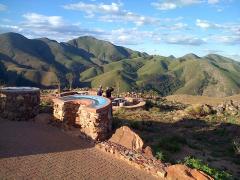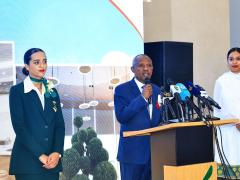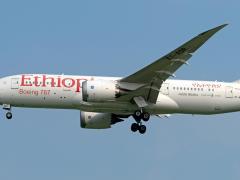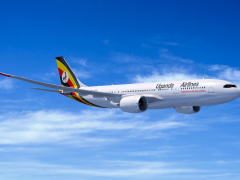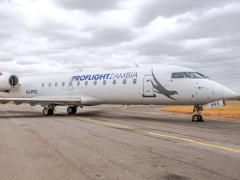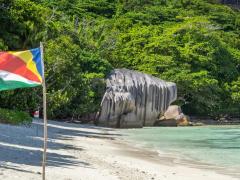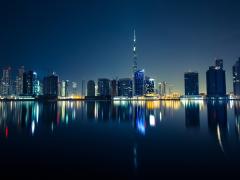What makes a top safari experience?
THERE are three key
features that determine
the success of a
traveller’s safari experience.
Establishing what matters
to your client will make or
break their safari trip, industry
experts say.
“Choosing the right location
for the safari is critical,” says
Onne Vegter, ceo of Wild
Wings Safaris. Some safari
destinations are great for a
first-time safari whereas
others are better suited to a
return visit, or people with a
particular interest.
“In some parts of greater
Kruger, the game viewing is
better and more consistent
than in other areas. The far
north of Kruger, for example,
is not ideal for a first safari,
where travellers are expecting
to see more game, but it is
great for a birding safari,” he
says. The same can be said of
some parts of the Okavango,
where travellers might not
see much wildlife and are
only able to do water-based
activities.
Other considerations
regarding location include
terrain. Onne says although
Mana Pools is a beautiful
national park, it does not
have any giraffes because the
animals cannot move along
the steep escarpment. For
this reason, Mana Pools might
not be a good choice for the
first time safari-goer. “For
many people on their very
first safari, a giraffe is on
their must-see list.”
The more authentic the
safari, the more likely it will
be enjoyed. “True wilderness
as opposed to the managed
‘park’ is what makes an ideal
location, says Henk Graaff,
md of SW Africa Destination
Management, adding that
usually the more remote the
location is, the better.
Travellers want an
experience that is genuinely
African, agrees Rodney
Gerhardt, gm of Mpongo
Private Game Reserve, adding
that location plays a big role in
creating that authenticity.
Some smaller reserves are
a bit artificial and need to be
micro-managed due to their
small size, says Onne. “In
some cases, the lions might
be confined to their own
separate camp like a glorified
zoo, and you might regularly
encounter the boundary fence
line during game drives.” A
wrong choice of location can
lead to disappointment, he
says, so travel agents need to
ensure they contact the tour
operator or ground-handler
to find out where the reserve
is situated.
Timing is everything
Seasonality makes a big
difference to the type of
game viewing available and
also presents agents with
opportunities to save their
clients money.
“Choose the season wisely,”
says Onne. “Each season
has its advantages but it is a
well-known fact that the dry
season usually offers better
game viewing than the wet
season.”
“Autumn and winter are
normally the safari high
season,” says Debby
Oscroft, Jenman African
Safaris marketing and sales
representative for Africa and
Australia.
Nic Griffin, chief executive
of Thornybush Luxury Game
Lodge Collection, agrees that
the viewing is better in winter,
because the grass is generally
lower, improving visibility.
In summer (November to
March), when rain can be
expected, the vegetation is
lush, restricting game viewing.
There is also less need for
game to travel out in the open
in search of watering holes.
Debby says most lodges have
reduced rates during the rainy
season, which agents should
enquire about.
On the other hand, it is
during summer that baby
animals abound, many plants
are in bloom and there are
more insects, says Onne.
Travel agents must
investigate which season
would best suit the clients’
needs, comments Edwin
Swan, sales and marketing
manager of Dream Hotels
and Resorts. A client who
wants to take photographs of
wildlife wouldn’t necessarily
enjoy a summer season safari
where dense foliage limits
game viewing. He says the
seasons also influence how
comfortable people are on
safari.
Travel agents must
remember that during summer
hot and humid weather can be
expected, whereas morning
game drives can be bitterly
cold in winter, says Onne.
Many guests will have their
own wish list of animals they
would like to see.
Knowing where you are most
likely to encounter certain
species is very helpful, says
Onne. “For leopard sightings,
head to the Sabi Sands Game
Reserve or South Luangwa
National Park; for cheetah
sightings, Phinda Game
Reserve is a great option;
for white lions, the Timbavati
Game Reserve might give you
the best
chance – although you will
need some luck!”
How good is your guide?
A great guide plays an
important role in a successful
safari experience. “Travellers
will spend most of their time
with the guide on safari
and, at the end, the quality
of the guide can determine
the traveller’s enjoyment of
the safari,” says Craig van
Rooyen, director of Tour
d’Afrique.
“A great safari guide
understands what makes a
safari special and will make
every game drive an amazing
experience, regardless of
what sightings you might
have. He doesn't race from
one Big Five sighting to the
next, missing many of the
smaller and equally interesting
creatures. A great guide knows
what to say and when, and
also when to keep quiet,”
says Onne.
However, knowing whether
your game ranger is a good
guide or not is difficult to
know in advance. Onne
advises travel agents to read
online reviews or engage the
services of an experienced
tour operator or senior agent
who can give advice based on
personal experience.
Traversing areas – size matters
THE size of the lodge’s
traversing area and its
ownership can have a
considerable impact on the
safari experience. Travel agents
should use this information
to tailor their clients’ trips to
match their needs.
“A lodge with access to a
large traversing area for game
drives generally offers better
game viewing than a lodge on
a tiny reserve or with a very
limited traversing area,” says
Onne Vegter of Wild Wings
Safaris.
However, the size of the
traversing area will also
influence how many vehicles
share the game-viewing space,
says Tour d’Afrique’s Craig van
Rooyen. “Fewer safari vehicles
in the area enhance the feeling
of being in the wilderness,” he
says.
An exclusive traversing area
also involves less congestion
at sightings and enables
travellers to stay as long as
they want at prime sightings.
“On shared traversing areas, it
is common for prime sightings
to become congested and
you sometimes may have to
wait before you can enter the
sighting, or you might have to
leave after 15 minutes just
when things get interesting,”
says Onne.
But again, as he points out,
if there are not many vehicles
calling in sightings on the
radio, an exclusive traversing
area could make game viewing
more difficult. “If there are
only one or two vehicles out,
they need a lot more luck to
find their own sightings. A
shared traversing area with
many vehicles and many pairs
of eyes looking for animals
means far more sightings will
be called in over the radio.”
Whether the traversing area
is private or government-owned
also plays a role in the scope
and type of safari experience
that can be offered at a
lodge. “In general, lodges on
government concessions are
not permitted to go off-road
during game drives, while
lodges on private concessions
are able to go off-road. In
some areas, this also affects
the ability to do bush walks
and night drives as these
are not always permitted
in government reserves,”
says Onne.
Match clients with the right lodge
TRAVEL agents can make
their clients’ stay at a game
lodge much more valuable
by matching the traveller to
the type of lodge. “Game
lodges are often defined
by their size – knowing
where to fit the right type
of traveller can be crucial.
There is a big difference
between staying at a huge,
impersonal lodge with 70
rooms, or a small, intimate
lodge with six rooms,” says
Onne Vegter of Wild Wings
Safaris.
Bigger lodges tend to
be less personal and are
noisier, so less interaction
is expected with other
travellers or lodge staff, he
says. “A larger lodge would
be more suited to people
who like to travel in groups
and perhaps also for those
who do not want as much
personal attention,” says
Legend Hospitality Group’s
Rina Cilliers.
“Generally, the group
lodges are sold by operators
that target the 50-plus
age group who enjoy
travelling in groups,” says
Tour d’Afrique’s Craig van
Rooyen. Larger lodges
are also often booked
by foreigners who do not
speak English and hence
a language guide would
accompany the group, he
adds. This would be an
important consideration for
travel agents when advising
their clients on what can be
expected at the lodge.
Henk Graaff of SW Africa
Destination Management
says larger lodges are a
popular choice for leisure
and incentive groups as
well as first-time safarigoers.
Larger lodges often
have a set itinerary and
work well for travellers who
are new to the game lodge
experience or prefer a set
plan, says Rina.
Travellers on a budget
will also prefer a larger
lodge says Debby Oscroft
of Jenman African Safaris.
“Often these properties
are more affordable than
the smaller, more exclusive
properties.” Craig agrees
and says travel agents
should note that, although
larger lodges are generally
aimed at groups, they do
offer an FIT component
for holidaymakers on a
budget. “Due to the nature
of peak season bookings,
the smaller lodges are not
always available and, as
such, group lodges have an
advantage when it comes to
affordability.”
Because larger lodges are
less personal and noisier,
Onne says they often suit
families with young children
who can add to the noise
without being frowned upon.
Henk agrees and says
because larger lodges are
also less exclusive, young
families may enjoy the
freedom afforded to their
children.
Generally, the smaller
the lodge, the more
personalised the safari
experience. At a smaller
lodge you can often expect
greater attention to detail,
better hosting, and more
personal touches, says
Onne.
The smaller lodges are
more secluded and private
and more expensive, says
Craig. “Great for FIT clients
and those who have a good
budget for a private safari
experience,” says Debby.
Onne says this type of
lodge is better suited to
single travellers, couples
and smaller groups. There is
greater interaction between
different travellers and lodge
staff. “It is not uncommon
for everyone to be seated
around one dinner table.
Even though there are fewer
people, there is often more
conversation and this will
appeal to people who enjoy
some social interaction,
without the noise and
impersonal atmosphere of a
big lodge.”
Mpongo Private Game
Reserve’s Rodney Gerhardt
says travel agents should
always enquire about the
facilities at the lodge or
game reserve as many
lodges, such as Mpongo,
provide services for large
and small groups.
Travel agents should
be wary of categorising
travellers too quickly, says
Nic Griffin, of Thornybush
Luxury Game Lodge
Collection. He says the
type of lodge is a personal
preference. “Quite a few
FIT travellers prefer bigger
lodges because their idea of
a holiday is to meet others
and share stories or travels.
On the other hand, other
FIT travellers prefer degrees
of solitude away from the
‘crowds’, so it’s a personal
preference.”
Book it!
Legend Hospitality Group is offering winter specials for Botswana.
Travellers can stay at the Phofu Eco Safari Lodge from R2 800 per person
sharing. The price includes three meals and two game activities. Children
under 12 pay half price. Alternatively they can stay at the Dugong Beach
Lodge from R 800 per person sharing. The price includes three meals and
non-motorised watersports. Children under 12 pay half price.
Did you know?
Most safari lodges have conservation programmes and travel agents need to warn their clients of
these extra costs. Rina Cilliers of the Legend Hospitality Group says agents should always check
if the extra conservation or park fees are included in the rate their clients are paying because often
they are not. “Park fees in East Africa can be expensive, so make sure they are included in your
package,” says Karin Sieberhagen sales and marketing manager South Africa of Serena Hotels,
Lodges and Resorts.
Overcoming access issues
ACCESSIBILITY to lodges
can often be tricky and travel
agents can offer better value
by warning clients of the
relevant challenges. “How
the traveller gets to the lodge
and their method of transfer
is very important, as this
sets the precedent for the
experience,” says Rodney
Gerhardt of Mpongo Private
Game Reserve.
Because the roads to and
around game lodges are often
dirt roads, travellers renting
vehicles are sometimes limited
in getting around, says Edwin
Swan of Dream Hotels and
Resorts. He says travel agents
should advise clients they may
not be able to access shops
for groceries or smaller items.
“Travel agents also need to
make sure clients know the
travel time to the lodge,” says
Rina.
Some lodges cannot be
accessed via road and the
only option is to charter an
aircraft to the reserve. Henk
Graaff of SW Africa Destination
Management, says such
lodges can be found in the
Okavango Delta and Zambia.
Some others, like those near
the Kruger National Park in
adjacent private reserves,
such as Sabi Sands and
Timbavati, offer light aircraft
flights as a more convenient
way of reaching the lodge.
“In the Sabi Sands, there
are landing strips at Ulusaba,
Inyati, Londolozi, MalaMala,
Arathusa, Elephant Plains, and
Chitwa Chitwa. Some of these
are tarred runways and receive
daily flights from Skukuza
airport,” says Onne Vegter of
Wild Wings Safaris.
He says most remote safari
lodges have their own airstrips,
and those that don’t generally
have an agreement with a
nearby lodge with a landing
strip. “The exceptions are
remote areas of Botswana and
Zimbabwe where it is common
for guests to arrive by light
aircraft from a regional airport
hub. Some lodges cannot be
reached by road at all.”
Air charters can also be
a convenient substitute for
a lengthy transfer. “Landing
strips do become important
when your alternative is a
four-hour transfer to get to
your lodge. Making use of
landing strips can be valuable
for people who have limited
time when travelling and want
to see as much as possible,”
says Craig van Rooyen from
Tour d’Afrique. “Madikwe
Game Reserve has two landing
strips and can service all its
lodges via air charters.”
The Thornybush Luxury
Game Lodge Collection offers
three landing strips that
provide easier access to its
game lodges. “Two of these
are in the Thornybush Game
Reserve, one at the top of
the reserve and one at the
lower end. The other is shared
with Arathusa in Sabi Sands,”
says Nic Griffin of Thornybush
Luxury Game Lodge Collection,
adding that about 20% of the
Collection’s guests make use
of these landing strips.
“Entabeni Safari
Conservancy offers two landing
strips and is only three hours’
drive or a 45-minute flight
from Johannesburg,” says
Rina Cilliers of the Legend
Hospitality Group.
What you need to know about malaria
SAFARI experts say
contracting malaria should
not be a major concern for
travellers, but there are
options available for families
with young children who may
be worried about infection.
The risk of contracting
malaria can be easily
managed by avoiding
mosquito bites and using
prophylactic medication,
meaning that it is not a major
issue, says Onne Vegter of
Wild Wings Safaris.
Henk Graaf of SW Africa
Destination Management,
says lodges in the malariafree
areas often exaggerate
the risk of contracting the
disease and that, in contrast,
safaris in malarial areas
are generally considered
more authentic. This is
because malaria-free areas
are relatively smaller and
the number of animals in
the park are often managed,
whereas low-risk malarial
areas like the Kruger National
Park are vast, allowing
animals to roam naturally.
Malaria-free destinations
would be most attractive
to families travelling with
young children, the elderly
and the pregnant, says
Onne. “Malarial areas are
not an option for younger
families,” says Dream
Hotels and Resorts’ Edwin
Swan. For these clients,
travel agents can advise
safari destinations such as
Madikwe and Pilanesberg,
the Eastern Cape, the
Waterberg region and the
Kalahari/Kgalagadi. “In
each of these areas there
is a large variety of different
lodges,” says Onne
Book it!
Serena Hotels is offering threenight
and four-day safaris in
Arusha, Tanzania. Travellers
can see Lake Manyara and
Ngorongoro Crater from
$1 745 (R25 974) per person
sharing. The special is valid
fromJune 1–October 31. The
cost includes: all road transport;
full-board accommodation at the
Ngorongoro Serena Safari Lodge
and Lake Manyara Serena Safari
Lodge, entry to the Ngorongoro
Crater Conservation Area and a
visit to a Maasai village. Flights to
and from Arusha and all items of
personal nature are not included.
Four top tips
PIETER Pieterse,
operations manager of
Travel with Flair gives his
tips for booking safaris.
More expensive doesn’t
necessarily mean
better: Don’t only look
at the rate to determine
the standards of a
lodge. Get an overall
view of what can be
expected. Read up
about the lodges, see
what people have to say
about their experiences
at the lodges, and look
at guest testimonials on
the lodges’ websites,
for example.
Keep the lodge
informed of your
clients’ needs and
expectations: Get as
much information as
possible from your
clients before their
arrival so you can let
the lodge know what
their reasons are for
travelling, their interests
and expectations.
Do a child-friendly
check: Find out whether
the lodges will allow
small children or what
their age restrictions
are. Smaller children
might not always be
allowed on open-air
game-viewing vehicles.
Extend the safari:
Suggest lodges that
allow night drives to
extend their gameviewing
experience
to include spotting
nocturnal and more
elusive wildlife.

